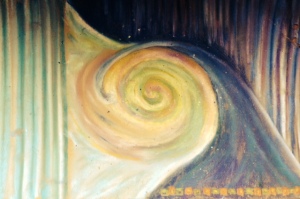
tayatha om bekandze bekanze maha bekandze bekandze randze samu gate soha
I learned this mantra years ago, while living in the garden oasis guest house of my dear friend Shui Lan. We listened to it together as we sought and claimed islands of peace in our chaotic lives. Shui Lan taught me to use this mantra to overcome both physical pain and the deeper pain of believing I am ever separate from the Oneness.
I have returned to this Medicine Buddha mantra over and over again as I surf the changes and excitements and pains and disappointments of this life. The words translate, I am told, to this:
do it like this:
start with OM, the undercurrent of the universe
do away with the pain of illness
do away with the darkness of ignorance
do away with the great separation
send this prayer to the highest, the widest, the deepest
offer this song and then relinquish it.
I offer this song, and then relinquish it. Because we don’t get to keep anything, do we? Sometimes at night, just before sleep, I review the golden moments of the day in my mind: the tickle of my son’s soft hair as he squeezes me tight, the deep joy in the clear eyes of my beloved as he laughs, the steam rising from a cup of perfect tea in that first sweet hour of the morning. I don’t get to keep any of that. I savor it, and breathe it in, and then relinquish it. Spring is bursting out in delirious joy all around me, a song to the sky that rises and then transforms. It doesn’t stay.
This dance of offering and relinquishing has become more subtle and complex as I grow older. When is self-acceptance called for, and when do I need to change? When am I being lazy, and when do I need deep rest? When should I retreat with a cup of herbal tea and when should I jump madly into the fray?
Where is the sacredness in the afternoons I spend engrossed in paperwork, allowing the stress and frustration to mount until I lash out at my family? Why do some days feel infused with magic and play, and others so heavy and purposeless? How do I reconcile the world of deep reverence and joy with the world that allows a friend to lose her child?
Lately I’ve been drawing the Raven card over and over again, the messenger from the great mystery. The message is: pay attention. The moment is a message, and my job is to pay attention. 
I have come to accept that I will never arrive at the perfect balance between these poles. Each is as true as the other. The afternoons of waiting endlessly on staticky hold for the IRS while children screech at each other are just as real as the afternoons of liquid light and synchronicity. Life is a surge between them, a spiral of coming to peace and being devastated and coming to peace again, a little deeper each time, a little wiser each time. Yesterday I learned Pema Chodron’s definition of compassion:
“Compassion is not a relationship between the healer and the wounded. It’s a relationship between equals. Only when we know our own darkness well can we be present with the darkness of others. Compassion becomes real when we recognize our shared humanity.”
This strikes me as being deeply true–true not only in our relationship to others, but in our relationship to our own lives. My life is not an interaction between the healed and the wounded. I am not wrong or broken when I am sick, or out-of-sorts, or reeling from loss.
Can I learn to relate to myself in those moments as an equal–not try to fix myself, or paper over my sadness and frustration with deep breaths and positive thinking? Can I learn to approach ALL OF IT with reverence and grace, to understand that ALL OF IT is an expression of an underlying Oneness?
Maybe not–not yet, anyway–but I am certainly being called to try. Again and again, life teaches me to stay on board through the hard things instead of wishing myself away to an ideal future. Sitting with friends who have just suffered unimaginable loss is every bit as sacred and important as sitting with friends who have just given birth.
 This is especially scary, I think, because I have a fear that if I pay attention to the darker parts of life, I will somehow lose my way and fall entirely into darkness. This is a shadow of the relentless “spiritual” drive to purify and enlighten and transcend, and it comes at the expense of authentic experience. Somehow I have taught myself that joy is more valuable than sorrow, that happiness and idealism are more important than anger or fear.
This is especially scary, I think, because I have a fear that if I pay attention to the darker parts of life, I will somehow lose my way and fall entirely into darkness. This is a shadow of the relentless “spiritual” drive to purify and enlighten and transcend, and it comes at the expense of authentic experience. Somehow I have taught myself that joy is more valuable than sorrow, that happiness and idealism are more important than anger or fear.
Really, all of them are just temporary states, weather for processing experience. Yes, happiness and joy are much more pleasant to experience and socially waaaaay easier to explain, but are they innately more valuable? My times of deep anger, rage, and pain have all led to phenomenal growth and courage. I don’t particularly wish to return to them, but they propelled me forward to where I am now.
There is a fear, too, that if I find the sacred in the painful, I will somehow negate the misery, the wrongness, of suffering. I don’t want to ever be okay with the fact that there are hungry children or women who cannot vote. Instead, I want to be able to stay with my life when it takes me into these experiences: to let the righteous anger and sorrow and terror lead me forward into action rather than paralyzing me, and all without losing my reverence for life and beauty.
Life is short and full of unexpected joys and sorrows. Don’t I want to be able to welcome all of it? Don’t I want to be fully present for each moment, rather than wishing half of it away?
So here I am, balanced as usual on the fulcrum. I live in a beautiful city filled with incredible friends. I am deeply loved and I love deeply. I have just learned that I am going to IRELAND in a week for the Expressive Arts Symposium, which is like a thousand million dreams exploding into truth simultaneously, and all because of the support of incredible friends and family. It’s almost too much joy to take in—can I really deserve to be this happy?

And also–real too– deep sadness. In my family, a child with mysterious symptoms that frighten us. In my community, children dying in a fire; dear friends losing close family, children losing parents. In my country, the rise of fear and hatred; in the world, waters rising, terror and devastating loss in Turkey.
Does the one experience negate the other? Or, somehow, can I live in such a way that I treat all of it with reverence? I want to learn how to hold it all. I want to learn the art of finding the sacred in the devastating.
I found myself discussing all of this with my friend Maeve on a sunny patio on a beautiful spring morning last week. She has been exploring similar themes in the yoga classes she teaches and told me about the 5 kleshas, or causes of suffering: ignorance of the truth; labeling/judgment; attachment; aversion; and clinging to life.
I find such beauty in this framework: envisioning aversion and clinging to life not as forms of suffering, but as causes of suffering! It was in talking to Maeve that I once again remembered the Medicine Buddha mantra, and that fundamental sickness of thinking any of it is ever separate.
I am neither Buddhist nor Yogi, but I am profoundly grateful for the wisdom of those who have gone before and tangled with these questions so gracefully. Maeve and I have decided to explore this together, one klesha at a time, through yoga and art and sacred slowness. We’ll attempt to welcome the shadows and the suffering with reverence and presence. (We’re meeting to explore the first klesha on April 21st, Lunar Beltane. All are welcome—if you’re in the area, we’ll be at our studio in the Phil Mechanic building; if you’re not and want to join in, let me know…we may try to structure it as a live webinar).
I offer this song and then relinquish it. I am filled with deep, heady joy even as I am devastated with sorrow.
Each moment is a messenger. I am learning not to turn any of them away.
teyatha om bekandze bekandze maha bekandze bekandze randze samu gate soha




